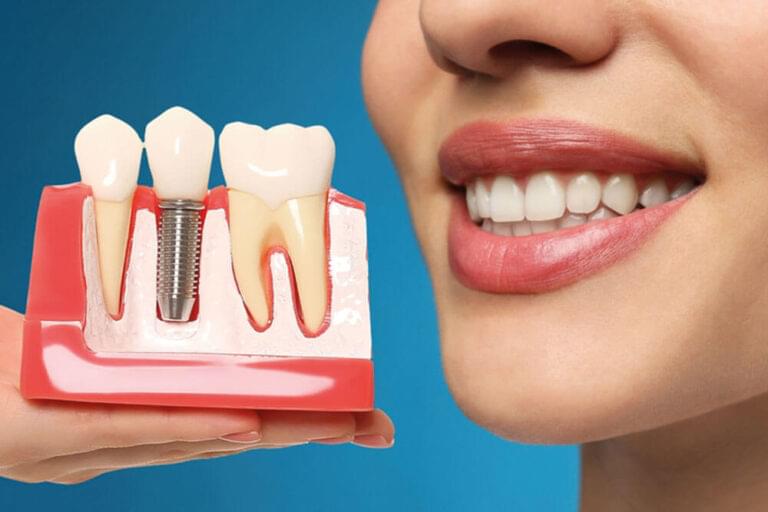

Millions of people face the challenge of losing teeth due to various factors like injury, decay, or the natural aging process. While there are robust and reliable solutions available, many wonder if they can regrow missing teeth naturally. The idea of regenerating teeth without medical intervention is fascinating, but is it realistic? Let’s explore the science, potential methods, and current dental solutions behind this concept.
Humans typically develop two sets of teeth: primary (baby) teeth and permanent teeth. Once a permanent tooth is lost, the body does not have a natural way to regenerate it. Although some research has explored ways to stimulate tooth regrowth, no proven methods are currently available for public use.
Despite this, there are ways to maintain good oral health and prevent further tooth loss. If a tooth is missing, modern solutions, such as dental implants, offer a stable and aesthetically pleasing replacement that effectively restores both function and appearance. Unlike other prosthetic options, dental implants integrate with the jawbone, mimicking natural tooth roots and preserving bone density.
For most people, the idea of their body spontaneously regrowing a lost tooth is appealing. Unfortunately, the natural process of tooth regeneration does not occur in humans. Regrowing teeth naturally is like expecting a broken ceramic plate to fuse back together on its own. While some animals, like sharks and alligators, have a built-in system to replace teeth throughout their lives—like a self-repairing plate—humans do not. Once a permanent tooth is lost, there is no natural way for the body to replace it. Unlike bones, which can heal and regenerate after a fracture, tooth enamel and dentin do not have the same regenerative capabilities.
However, in rare cases, people with a genetic condition called hyperdontia, which results in the development of supernumerary or extra teeth, may develop additional teeth. While this does not mean everyone can regrow missing teeth naturally, it does indicate that the human body may have some untapped potential for tooth regeneration. Scientists are studying the genetic markers that contribute to this phenomenon to determine if they can be harnessed for regenerative dentistry in the future.
While there is currently no proven way to regrow missing teeth naturally, maintaining strong and healthy teeth can help prevent tooth loss. Here are some natural ways to support oral health:
A diet rich in calcium, vitamin D, and phosphorus strengthens existing teeth. Foods like leafy greens, dairy products, and nuts provide essential nutrients to maintain enamel and gum health. Consuming omega-3 fatty acids, found in fish and flaxseeds, can also reduce inflammation and support overall oral wellness.
Certain herbs, like turmeric and licorice root, have antibacterial properties that support gum health. Though they won’t regrow missing teeth naturally, they can help prevent further tooth loss by reducing inflammation and bacterial growth in the mouth.
An ancient practice using coconut or sesame oil, oil pulling helps reduce harmful bacteria in the mouth. While it can improve oral hygiene and gum health, there is no evidence that it can regrow missing teeth naturally. However, regular oil pulling may help reduce gum inflammation and support a healthier oral environment.
Brushing twice a day, flossing, and using mouthwash can prevent decay and gum disease, which are the leading causes of tooth loss. While these steps won’t regrow missing teeth naturally, they are essential in protecting the teeth you have. Using fluoride toothpaste and mouthwash can further strengthen enamel and reduce the risk of cavities.
Scientists are making progress in regenerative dentistry. Researchers are exploring ways to activate dormant stem cells in the mouth to regrow missing teeth naturally. Clinical trials are underway, with some experiments using laser therapy to stimulate tooth growth. While promising, these techniques still require more testing before they become a practical solution.
Another avenue of research involves using bioengineered tooth scaffolds. These structures, combined with growth factors, may help guide new tissue growth in the future. However, for now, these methods remain experimental. The use of 3D printing technology has also opened doors for bioengineered dental solutions, where researchers are exploring the possibility of printing custom tooth scaffolds infused with stem cells.
The health of the jawbone is closely tied to dental health. When a tooth is lost, the surrounding bone lacks stimulation, leading to bone loss over time. This can affect facial structure, cause misalignment of remaining teeth, and complicate future dental procedures.
Maintaining jawbone health is essential, and here are some strategies to consider:
Additionally, bone grafting can help maintain bone structure if a tooth has been lost. This can be particularly beneficial for those considering dental implants in the future.
Preventing tooth loss is key to maintaining oral health. Early intervention in dental issues can help avoid the need for tooth replacement procedures. Regular dental visits, prompt treatment of cavities and gum disease, and maintaining good oral hygiene all play a role in preserving natural teeth.
Furthermore, overall health is closely linked to oral health. Conditions like osteoporosis, which weakens bones, can also affect the jawbone and teeth. Recognizing these connections highlights the importance of a holistic approach to health. Managing conditions like diabetes, which can impact gum health, is also critical in preventing tooth loss.
Choosing the right solution for missing teeth depends on various factors, including overall health, bone density, and lifestyle. A dental professional can assess your unique situation and recommend the most suitable option based on your needs. Certain health conditions, such as osteoporosis or diabetes, can impact healing and treatment success, making a professional evaluation essential. Whether you’re considering implants, bridges, or future regenerative treatments, consulting a dentist ensures you receive the safest and most effective solution tailored to your health and long-term oral well-being.
Until science finds a way to regrow missing teeth naturally, dental professionals offer several effective solutions:
Dental implants are the closest alternative to natural teeth. They provide a permanent, natural-looking replacement for missing teeth, allowing patients to eat, speak, and smile with confidence. Implants fuse with the jawbone, preventing bone loss and maintaining facial structure. While they do not allow you to regrow missing teeth naturally, they offer a long-term and reliable solution.
Dental bridges and dentures can replace missing teeth for those seeking alternatives. Bridges use adjacent teeth for support, while dentures are removable solutions. Although they don’t regrow missing teeth naturally, they provide functional and aesthetic benefits.
One promising area of research involves bone grafting and regenerative procedures that may one day help people regrow missing teeth naturally. For now, bone grafts are primarily used to support dental implants, but future advancements may expand their role in tooth regrowth.
Losing a tooth can significantly impact a person’s quality of life. Beyond the aesthetic concerns, missing teeth can affect speech, chewing ability, and overall confidence. Modern dental solutions, particularly dental implants, address these issues effectively. Dental implants, for instance, not only restore the appearance of a natural smile but also provide the functionality needed for a healthy lifestyle. Patients who opt for implants often report a significant boost in self-esteem and an improved ability to enjoy meals and social interactions. This restoration of function and confidence is a critical aspect of dental care. While the dream of naturally regrowing teeth continues to inspire research, the immediate benefits of current solutions cannot be overstated.
While the ability to regrow missing teeth naturally is not currently possible, advancements in dental research may make it a reality in the future. Scientists continue to explore innovative ways to stimulate tooth regeneration, including gene therapy and biomaterials designed to mimic natural tooth development.
Maintaining good oral health and considering modern dental treatments like implants or bridges can ensure a healthy, functional smile. If you’re missing teeth, consult a dental professional to explore the best treatment options.
Total Freedom is a custom solution and one of the most well recognized dental implants providers in Scottsdale and Phoenix.
We’re about providing the treatment that best fits you. That could mean a full set of new teeth. It could mean fewer implants than you anticipated. It could mean you don’t require any implants at all. When we can save the teeth you have, that’s what we recommend.
People travel from all over the country to Arizona for consultations and treatment with Dr. Kaiser. It’s unquestionably worth the trip.
Whether you’re seeking a first or second opinion, or even if you decide to choose another dental provider, a consultation with Dr. Kaiser will provide you with invaluable insights into your unique dental situation and the available options. You won’t be disappointed.
info@totalfreedomdental.com
Both dental implants and dentures have their pros and cons. And both dentures and dental implants have come a long way in the past 10
What Dental Implants Look Like: A Complete Guide to Natural Smiles Have you ever asked yourself, what do dental implants look like once treatment ends?
How Much Do Dental Implants Cost? Worrying about price is normal. It’s like standing in an auto repair shop after hearing a strange engine noise:

